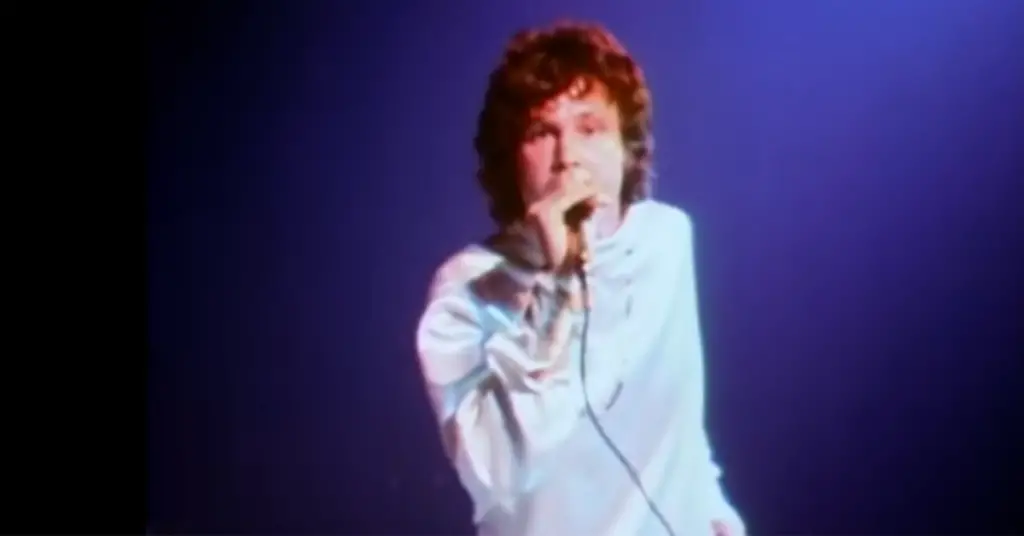The Doors – “Gloria”: Psychedelic Lust and Raw Rock Ritual
When The Doors took on “Gloria”—originally written and recorded by Van Morrison with Them in 1964—they weren’t simply covering a garage rock staple. They were transforming it into something darker, wilder, and far more dangerous.
While the original “Gloria” was already brimming with teenage lust and a swaggering three-chord riff, The Doors stretched it out into a psychosexual odyssey, giving Jim Morrison a platform to channel his poetic provocations, spiritual chaos, and raw libido.
Their version isn’t just a cover.
It’s a ritual. A seduction. A possession.
The Sound: Garage Rock Goes Psychedelic
At its core, “Gloria” is a primitive rock ‘n’ roll song—simple chords, a catchy refrain, and a chant-like chorus. But when The Doors tackled it—particularly in their famous live performances—they wrapped that simplicity in psychedelic improvisation and theatrical bravado.
Robby Krieger’s guitar remains dirty and direct, but it’s layered with the swirling menace of Ray Manzarek’s keyboards and the loose, tribal feel of John Densmore’s drumming. The groove stays hypnotic, allowing Morrison space to do what he did best: improvise, provoke, and seduce.
The Voice: Morrison Unleashed
This is Jim Morrison in full Dionysian mode.
“She come around here, about midnight…”
From the first line, he’s not singing—he’s conjuring. In studio versions (like the one recorded for Alive, She Cried, released posthumously in 1983) and especially in live sets, Morrison uses “Gloria” as a freeform performance piece, sometimes launching into extended spoken-word interludes filled with surreal imagery, sexual confessions, and religious overtones.
His version isn’t about romance. It’s about power, ecstasy, and transformation. When he spells out her name—“G-L-O-R-I-A”—he does it like he’s invoking a spirit rather than serenading a girl.
The Lyrics: Extended Improvisation and Transgression
While Van Morrison’s original lyrics were provocative for the time, Jim Morrison pushed the boundaries further, often making the song NSFW long before that was a label.
In live shows, he would interject lines like:
“I was walking down the hallway…
In a white hotel…
I rang the bell…
I touched her hand…”
These weren’t just lyrics—they were dream fragments, erotic memories, or hallucinations, performed with the intensity of a man possessed.
For Morrison, “Gloria” wasn’t just a song about a girl—it became a canvas for performance art, a symbol of unfiltered desire, and a vehicle for rebellion against social and musical conventions.
The Context: From Club Favorite to Cult Artifact
“Gloria” had long been a staple in The Doors’ live repertoire, especially in their early days playing clubs on the Sunset Strip. It allowed them to connect with audiences instantly—it was familiar, infectious, and had just the right amount of bite.
But as the band evolved, the song became a launching pad for experimentation. Fans who saw them live in the late ’60s often witnessed versions of “Gloria” that stretched far beyond its original runtime, blending poetry, blues, and madness.
The studio version released on Alive, She Cried in 1983 was a long-awaited gift to fans. It captured the essence of what made The Doors unique: they didn’t just play songs—they turned them into shamanic events.
Legacy: A Dangerous Cover That Became Its Own Legend
The Doors’ rendition of “Gloria” stands as one of the most iconic cover songs in rock history—not because it topped charts, but because it showed what a cover could be: radical, personal, and transformative.
Where Van Morrison gave us a raw anthem of teenage rebellion, The Doors gave us a fever dream soaked in sin, mysticism, and sexuality. It’s one of those rare covers that not only pays tribute to the original but also pushes the boundaries of what rock music can express.

Final Thoughts
“Gloria,” in the hands of The Doors, is not a love song.
It’s a spell. A confession. A resurrection.
It reminds us that rock ‘n’ roll, at its best, isn’t safe.
It’s not polite.
It’s a fire in the night—and Jim Morrison, standing in the center, ready to burn.


Facebook Comments